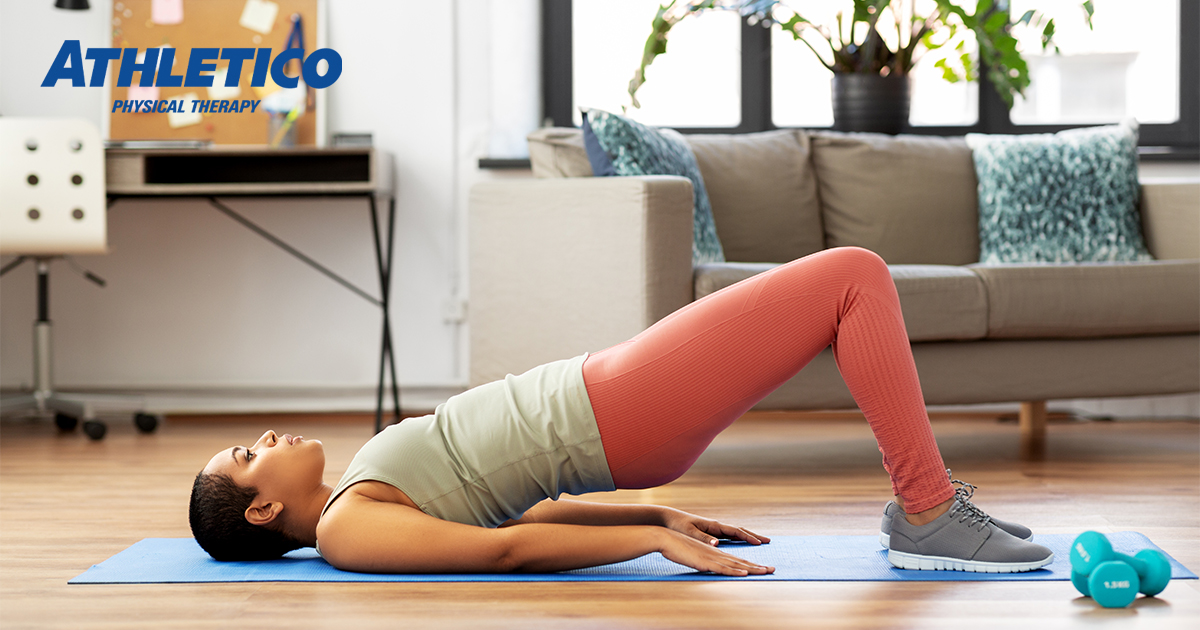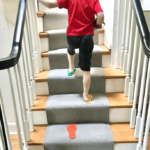Exercise is known to have many benefits for the body, including improving quality of life and reducing the risk of chronic disease. Most of us know that exercising improves our physical health and benefits our mental health. Exercise can help improve self-esteem and cognitive function, and reduce mental health problems, including anxiety, depression, and negative mood. Exercise plays a role in mental health care by increasing blood circulation to the brain leading to a decreased response to stressors. Despite the latest research, exercise as a mental health intervention is often underutilized, especially in the postpartum population.
Postpartum depression is defined as “depression experienced by a mother after childbirth, usually caused by a combination of hormonal changes, psychological adjustment to motherhood, and fatigue.”2 Symptoms of postpartum depression include, but are not limited to, mood swings, anxiety, sadness, irritability, overwhelm, crying, difficulty concentrating, loss of appetite, difficulty being with and away from loved ones, anger, hopelessness, and trouble sleeping. These symptoms usually start 2-3 weeks after delivery and can last 2 weeks, sometimes longer.2
So, how does exercise work? As mentioned above, exercise increases blood flow to the brain, which reduces the physiological response to stress.1 This also applies to the postpartum population. Recent research has even shown that exercising during pregnancy can help reduce or prevent postpartum depression.
Now, how do you start a new exercise routine? There are some security considerations to consider. Before starting any new type of exercise, be sure to consult with your doctor to make sure you are safe on your new exercise journey, and to have your pelvic floor muscle health and function checked by a physical therapist. After discussing a plan with your doctor, decide which exercise is best for you. Workout doesn’t have to be traditional running and lifting. There are many forms of exercise to choose from. The type of exercise you choose should be one that you enjoy because it’s how you maintain the new lifestyle choices you’ve decided to make. Different types of exercise might include walking, running, biking, lifting weights, dancing, or taking a group fitness class. If you’re still unsure about exercising and exercising safely, reach out to your local personal trainer or physical therapist for guidance on your journey.
If you have movement problems or start to experience pain throughout your pregnancy or postpartum journey, see a physical therapist, especially one who specializes in pregnancy. While pain during pregnancy is not a red flag, it should be taken seriously and understood that it is not necessarily “normal.” Seeking a pregnancy specialist can ensure your safety is considered. Contact an Athletico pelvic floor therapist for a free evaluation. Our Athletico team will assess your pain and recommend a treatment plan to prevent pregnancy pain, or advise on safe dos and don’ts for exercising during and after pregnancy. Free assessments are available in-clinic or virtually through our telehealth platform.
Find a Pelvic Health Therapist
The Athletico Blog is an educational resource written by Athletico staff. Athletico bloggers are licensed professionals who abide by the codes of ethics established by their respective professional associations. The content published in blog posts represents the opinion of the author alone, based on his expertise and experience. The content presented in this blog is for informational purposes only and does not constitute medical advice and should not be relied upon in making personal health decisions.
resource:
1. Sharma, A., Madaan, V., & Petty, F. (nd). Exercise for mental health. National Library of Medicine. Retrieved from https://www.ncbi.nlm.nih.gov/pmc/articles/PMC1470658/
2. Mayo Foundation for Medical Education and Research. (November 24, 2022). postpartum depression. Mayo Clinic. Retrieved April 18, 2023 from https://www.mayoclinic.org/diseases-conditions/postpartum-depression/symptoms-causes/syc-20376617
About the author:
Paige Gibbens is a Physiotherapist specializing in Lower Extremity and is certified in Dry Needling and Graston. She is also the Missouri and Southern Illinois Regional Coordinator for the Athletico Endurance Program.



